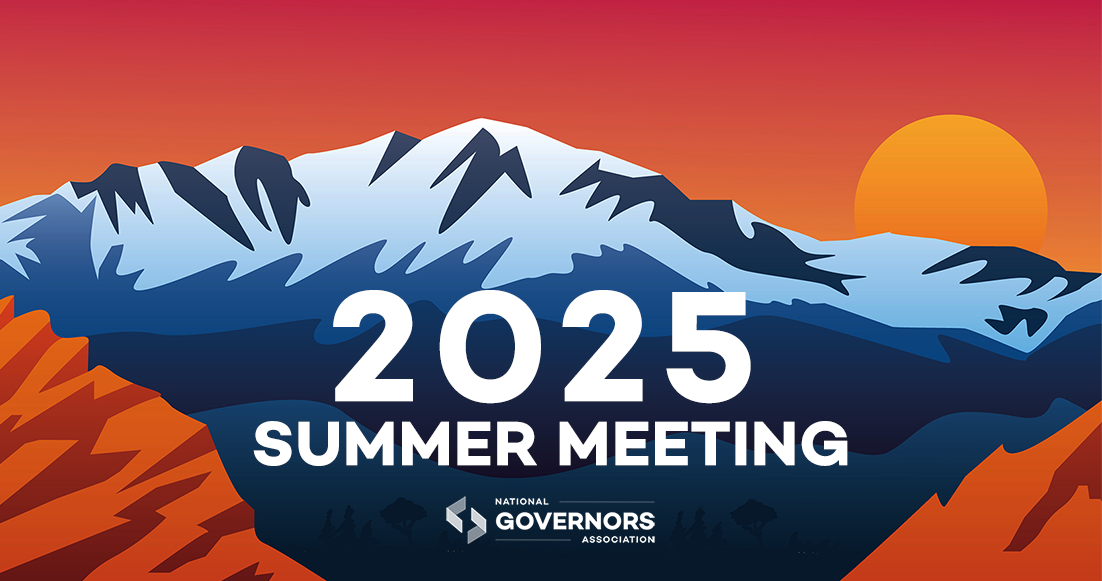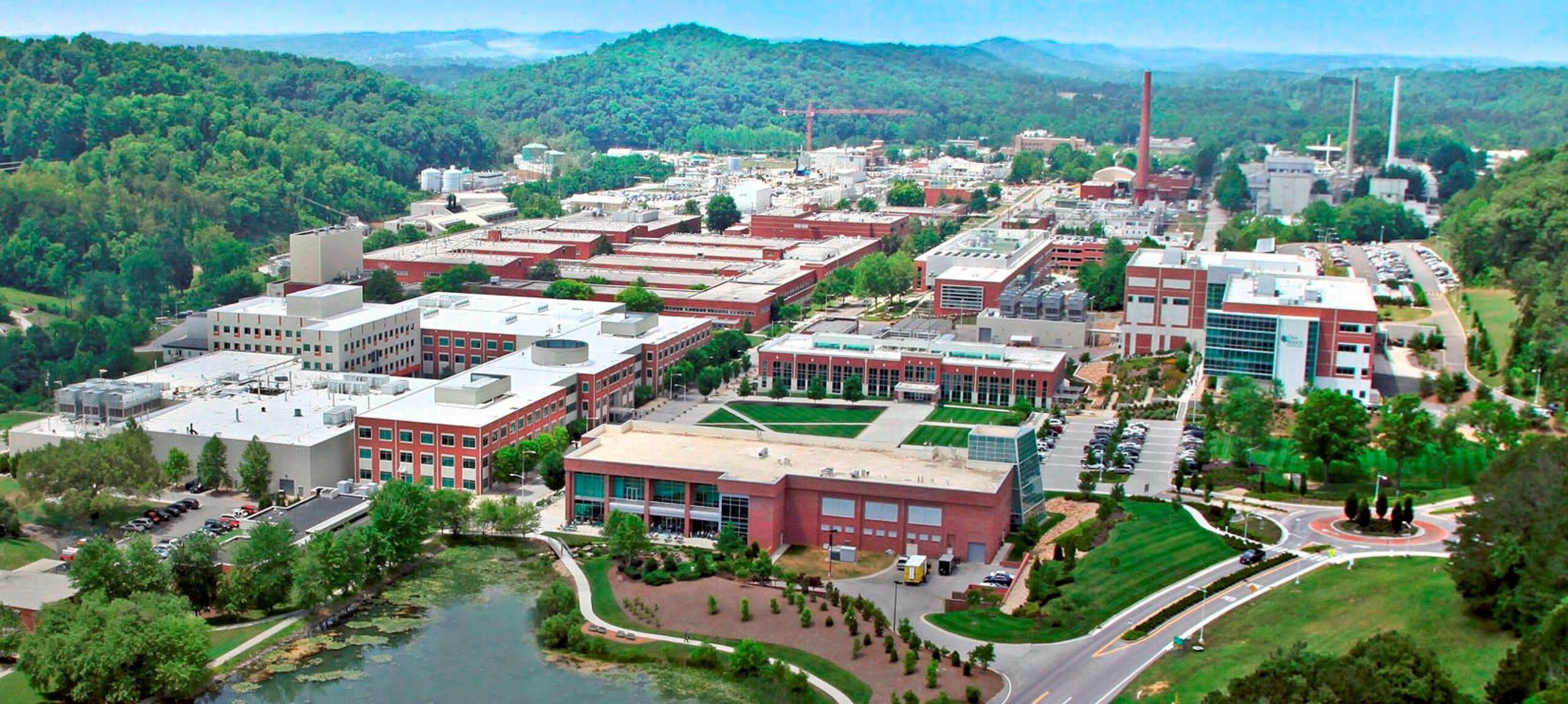At the 2023 NGA Winter Meeting, Idaho Governor Brad Little and Colorado Governor Jared Polis co-hosted a discussion on how Governors are working to meet the needs of students today so they can achieve career success tomorrow. Rhode Island Governor Dan McKee and Oregon Governor Tina Kotek also took part in the discussion that was part of NGA’s Community Renewal Task Force, one of NGA’s three Governor-led task forces designed to foster a collaborative environment for Governors to focus on NGA’s top federal priorities for the 118th Congress now and in the future. Learn more about the task force here.
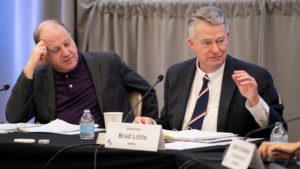
The discussion, held during the 2023 NGA Winter Meeting, featured conversations with: Lydia Logan, VP, Global Education & Workforce Development, IBM; Mark Schneider, Director, ED Institute of Education Sciences, and Sara Wolforth, Policy Principle, AIR.
Governor Little kicked off the meeting by sharing examples of work taking place in Idaho to strengthen education opportunities for children to prepare them to meet the demands of the workforce. Governor Little highlighted programs designed for children of all ages, including an initiative to offer Launch Grants to every high school graduate in Idaho. Through the grants, Governor Little shared, “every single graduating Idaho student from high school will have available to them $8,500 to get a college degree, an associate degree or a technical certificate.”
Governor Polis also detailed examples of work taking place in Colorado to prepare “all kids for success” in their future endeavors, including programs aimed to help families with young children. Governor Polis noted Colorado has seen “an immediate workforce benefit today in terms of child care.” He also noted the state “got full day kindergarten done, and then this fall we’re starting universal preschool” because it’s “a big part of preparing kids for success and expanding our workforce.”
The discussion focused on struggles many states are facing to find skilled workers, with Colorado, for example, having two openings for every unemployed person, and Idaho having three openings for every unemployed person.
The panelists shared their expertise and insights about ways Governors and states can build on programs similar to the ones Governors Little and Polis outlined, looking to explore options for children at all stages of development, while also incorporating other best practices that can equip students with the skills and resources needed to find good jobs as adults and, in turn, be equipped to meet states’ workforce needs.
Lydia Logan shared that IBM maintains skillsbuild.org, a resource where anyone can create an account and access educational resources at no cost. This website augments an apprenticeship model IBM promotes to prepare people to enter the workforce with the skills they need, while making sure the skills acquired are transferable throughout the workforce. Logan said, “you should be able to earn and learn on the job. But you also should be able to earn credentials that you can take from your place work.”
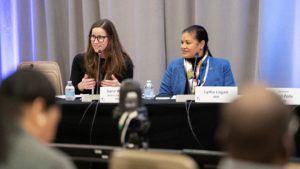
Sara Wolforth shared her insights about the importance of fostering positive conditions for both learning and teaching, noting “there’s a lot of overlap between the two” and stressing that states can focus on measurement as one way to assess these two areas. She then stressed broadening the focus beyond academics and looking at student competencies in things like teamwork, problem solving, knowing when you need help, and asking for help. There are skills that are both important in learning today, but also support students through their entire lives, build resilience, and help build relationships. Wolforth also detailed the need to foster better collaboration between families, schools, communities and the government to find better solutions that meet the needs of all parties.
Mark Schneider emphasized that “community colleges are an incredible resource for this country. It’s one of the largest areas for professional and career training.” Schneider stressed the importance of considering the return on investment (ROI) when exploring different programs and using data to look at regional markets and identify specific skills that are in high demand. Driving this point home, Schneider argued that “it’s program level outcomes that really matter” and that he’s seen examples of states leading in matters of connecting ROI measures to postsecondary data such as in Colorado, Tennessee, Virginia, and Rhode Island.
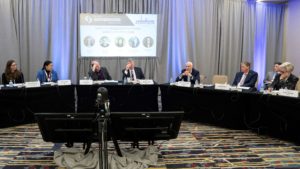
Governor Little noted that with a shift toward skills and competencies we need to look at who is “the keeper of that data” to allow employers to verify student achievement. This led to a conversation on frameworks for establishing accreditation and conveying credentials. To this point, Governor Polis jumped in to share how Colorado is leading in terms of skills-based hiring so that, in addition to formal certification, people can also gain skills through informal experience, such as business ownership, homemaking, and military training. On this, Governor Polis asked panelists to consider measurement of informal skill development, and how to establish accountability in credentialing.
Joining the conversation with Governors Little and Polis and the panelists, Governor McKee shared about Rhode Island’s efforts in improving Pre-K through career development programs, including development of a non-profit to connect inside-school and outside-school activities to create a 365-day timeframe for learning. Governor Kotek chimed in as well, expressing admiration for community colleges, calling them the “linchpin of our workforce issues,” and said that we need to work through if the main mission of community colleges is to prepare students for a four-year degree, or to prepare them for direct entry into the workforce.
In concluding remarks, Governor Polis echoed a comment made by Governor Kotek, noting that while economics plays an important role in the discussion on student and career success, we shouldn’t lose sight of also helping people “find their passion in a career they actually want to stick with.” Closing the session out, Governor Little thanked the panelists and reiterated that, as Governor, his biggest initiative is ensuring every that graduates from high school in Idaho has a pathway to an in-demand job, something he is working to accomplish through the Idaho Launch Grant.
Watch the full session below.

